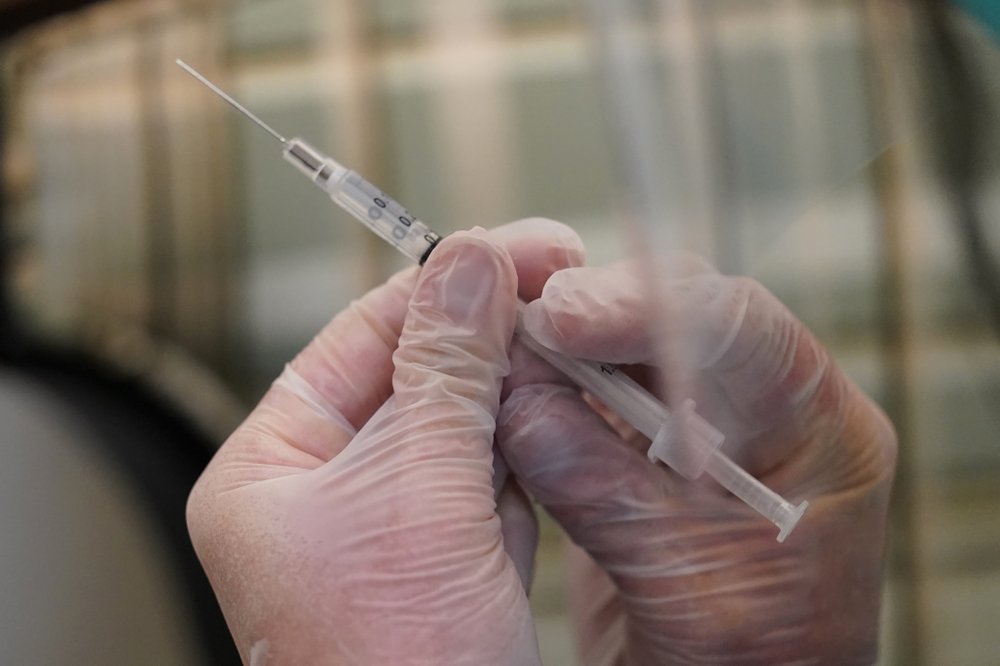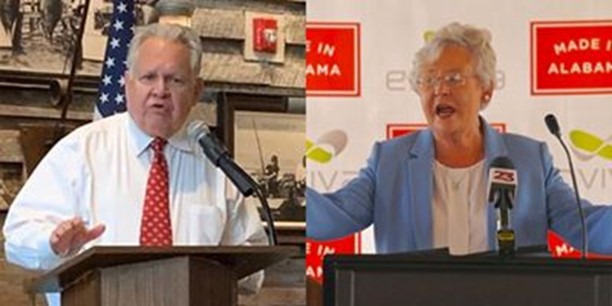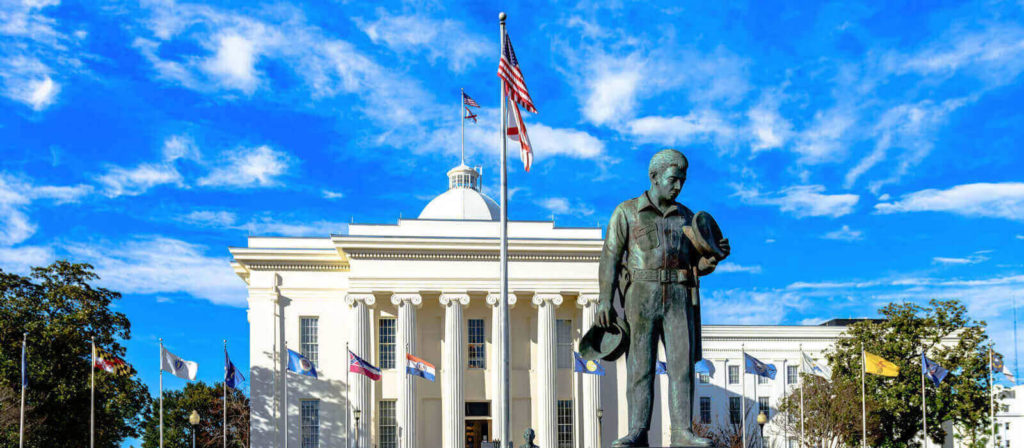John Meigs: Alabama physicians face challenges head-on during vaccine rollout

Because of a seemingly slow rollout of the COVID-19 vaccine, physicians have started to hear many concerns from their patients. Understandably, the people of Alabama are growing more eager each day to get vaccinated. Physicians were privileged to be included in the first tier of vaccine recipients and remain our patients’ biggest advocate for vaccination against the Coronavirus. In addition to issues like staffing shortages, a major obstacle we face is the fact that from week to week, our practices and hospitals are not alerted to when we are getting more vaccines or exactly how many we will receive. Even the Alabama Department of Public Health (ADPH) has no input into the quantity allocated and is typically notified less than 24 hours before the vaccine is shipped. This makes it extremely difficult to set up vaccination and follow-up appointments. It’s tempting, but comparing Alabama’s response to surrounding states doesn’t necessarily make sense. The number of COVID-19 vaccine doses allocated to Alabama is based on our population and is not determined by how much vaccine is on hand in the state. The number of doses remaining from previous allocations does not affect the number of doses that the Centers for Disease Control and Prevention (CDC) authorizes for Alabama. Alabama still faces struggles in figuring out the logistics of vaccine distribution and allocation, but there are a few things your physician wants you to know about the process. ● The Federal Government determines the quantity of vaccines that are allocated to the state. ● There is a shortage of available vaccines in Alabama. ●There are 326,000 healthcare providers, nursing home residents, law enforcement officers, firefighters, and 350,000 persons 75 years of age and older that are currently eligible for the vaccine. ●The number of first doses of the vaccine shipped to Alabama per week only averages around 50,000 to 60,000. Wide distribution of the COVID-19 vaccine will take time. While we are anxious for the vaccine to be made available to all Alabamians, physicians also want to urge you to wait until you fall into the appropriate tier. As of January 28th, Alabama is administering vaccines to healthcare workers, residents, and staff in long-term care facilities, first responders, and individuals 75 years of age and older. We know vaccines are the best bet to slow this pandemic down and get enough folks immunized so the virus won’t spread as easily. However, for now, even after we get vaccinated, we need to continue to wear masks and physically distance. We want to protect folks from a disease that can be very deadly. If we all work together, we will be that much closer to getting life back to normal. John Meigs Jr., MD is the President of the Medical Association of the State of Alabama.
Donald Trump names 2 lawyers to impeachment defense team, one from Alabama

Former president Donald Trump announced a new impeachment legal defense team Sunday, one day after it was revealed that he had parted ways with an earlier set of attorneys with just over a week to go before his Senate trial. The two lawyers representing him will be David Schoen, a criminal defense lawyer with offices in Alabama and New York, and Bruce Castor, a former county prosecutor in Pennsylvania. Both issued statements through a Trump adviser saying that they were honored to take the job. “The strength of our Constitution is about to be tested like never before in our history. It is strong and resilient. A document written for the ages, and it will triumph over partisanship yet again, and always,” said Castor, who served as district attorney for Montgomery County, outside of Philadelphia, from 2000 to 2008. The announcement Sunday was intended to promote a sense of stability surrounding the Trump defense team as his impeachment trial nears. The former president has struggled to hire and retain attorneys willing to represent him against charges that he incited the deadly riot at the U.S. Capitol, which happened when a mob of loyalists stormed Congress as lawmakers met Jan. 6 to certify Joe Biden’s electoral victory. That’s a contrast from his first impeachment trial, when Trump’s high-profile team of attorneys included Alan Dershowitz, one of the best-known criminal defense lawyers in the country, as well as White House counsel Pat Cipollone, and Jay Sekulow, who has argued cases before the Supreme Court. Trump’s team had initially announced that Butch Bowers, a South Carolina lawyer, would lead his legal team after an introduction from Republican Sen. Lindsey Graham. But that team unraveled over the weekend due to differences over legal strategy. One person familiar with their thinking said Bowers and another South Carolina lawyer, Deborah Barbier, left the team because Trump wanted them to use a defense that relied on allegations of election fraud, and the lawyers were not willing to do so. The person was not authorized to speak publicly about the situation and requested anonymity. Republicans and aides to Trump, the first president to be impeached twice in American history, have made clear that they intend to make a simple argument in the trial: Trump’s trial, scheduled for the week of Feb. 8, is unconstitutional because he is no longer in office. “The Democrats’ efforts to impeach a president who has already left office is totally unconstitutional and so bad for our country,” Trump adviser Jason Miller has said. Many legal scholars, however, say there is no bar to an impeachment trial despite Trump having left the White House. One argument is that state constitutions that predate the U.S. Constitution allowed impeachment after officials left office. The Constitution’s drafters also did not specifically bar the practice. Castor, a Republican who was the elected district attorney of Pennsylvania’s third-most populated county, decided against charging Cosby in a 2004 sexual encounter. He ran for the job again in 2015, and his judgment in the Cosby case was a key issue used against him by the Democrat who defeated him. Castor has said that he personally thought Cosby should have been arrested, but that the evidence wasn’t strong enough to prove the case beyond a reasonable doubt. In 2004, Castor ran for state attorney general unsuccessfully. In 2016, he became the top lieutenant to the state’s embattled attorney general — Kathleen Kane, a Democrat — as she faced charges of leaking protected investigative information to smear a rival and lying to a grand jury about it. She was convicted, leaving Castor as the state’s acting attorney general for a few days. Schoen met with financier Jeffrey Epstein about joining his defense team on sex trafficking charges just days before Epstein killed himself in a New York jail. In an interview with the Atlanta Jewish Times last year, Schoen said he had also been approached by Trump associate Roger Stone before Stone’s trial about being part of the team and that he was was later retained to handle his appeal. Trump commuted Stone’s sentence and then pardoned him. Schoen maintained in the interview that the case against Stone was “very unfair and politicized.” Neither Schoen nor Castor returned phone messages seeking comment Sunday evening. Republished with the permission of the Associated Press.
Jim Zeigler: Gov. Kay Ivey expected to sign two leases for mega prisons today but release copies and costs later

Gov. Kay Ivey’s office says she will sign two 30-year leases for privately built mega prisons today (Mon. Feb. 1), but Press Secretary Gina Maiola says Ivey will not release copies of the contracts and costs until later: Ivey’s press secretary stated, “We are anticipating her to put pen to paper and as soon as she does, we will be releasing more details. We hoped it would have been sooner, but we are working as quickly as possible to get the best deal as possible for the state.” State Auditor Jim Zeigler says the signing is improper. Here is a statement Zeigler released Sunday: The Ivey plan to lease prisons is rotten. There is no other way to describe it. For months, we had been told the rent would be capped at $88 million a year for three privately constructed prisons. Just this Friday, we were told – for the first time – that the cost for the first year will be $94 million — and the rent will go up yearly. For months, we had been told that the total rent over the 30-year rental period would be $2.6 billion. Just this Friday, we were told the total rents will exceed $3 billion. All of this is coming while the administration insists it will go ahead and sign two leases Monday, Feb. 1, three days after the increased costs were mentioned for the first time. That is rotten. Gov. Ivey is using a Nancy Pelosi approach – we have to sign it before you can know what is in it. She has not provided the legislature with copies of the leases, cost information, nor other details. This conduct is irresponsible. For months, I have been saying that the governor is bypassing the legislature. She has had no legislation and other input from the legislative branch. She has provided almost no information to the legislature. Now, she is hurrying the signing of two of three leases on the day before the legislative session starts. That timing indicates that the governor does not want legislative input. The Ivey plan would have the state paying rent of $94 million a year and increasing for 30 years. At the end of that time, the state will have paid over $3 billion in rent. The state will then own equity in the prisons of exactly zero. The state would have to start over and pay for the prisons a second time. The principal partner in two of the leases, CoreCivic, has a questionable track record in other states where they have private prisons deals. Gov. Ivey needs to postpone signing the prison leases. The legislature needs to review the entire plan and consider bills to correct the fatal flaws. The Department of Corrections needs to be subjected to a management audit. CoreCivic needs to be vetted. What could possibly wrong with these actions? There is an old saying, “Something’s rotten in Denmark.” Well, something is clearly rotten in Montgomery. It is the Ivey prison plan – and the way it is being ramrodded. Jim Zeigler has been the Alabama State Auditor since 2015.
Lottery, virus liability, prisons before lawmakers in 2021

Alabama lawmakers return to Montgomery on Tuesday for the 2021 regular session that will be conducted differently because of the COVID-19 pandemic. Access to certain areas of the statehouse is limited and Alabama Gov. Kay Ivey will give a televised State of the State address instead of appearing before lawmakers. Legislators plan to meet for two weeks and then take a break to review COVID-19 precautions. Here are some key issues to watch during 2021 when lawmakers return to Montgomery. GAMBLING Senate President Pro Tempore Del Marsh is introducing legislation to establish a state lottery and allow casinos in the state. Alabama is one of only about five U.S. states without a lottery. Marsh said the bill directs the governor to negotiate a compact with the Poarch Creek Indians. It also allows gambling at several non-Native American sites. Lottery revenue would provide merit-based college scholarships while other gaming revenue would be used to expand high-speed internet in the state. “I see this as an opportunity to do these things without taxing the taxpayer,” Marsh said. The senator added he is trying to get agreement among the “major players” in the state after previous bills failed amid a turf war over who would run casinos. If approved by lawmakers, the proposal would go before voters. COVID-19 LIABILITY Republican lawmakers said a top priority will be legislation to shield companies and others from civil liability during the COVID-19 pandemic. SB 30 by Republican Sen. Arthur Orr would provide immunity for businesses, health care providers, and others from certain damages claimed by individuals who allege that they contracted or were exposed to the virus. The bill is expected to be debated in the first weeks of the session along with another to exempt federal coronavirus relief funds from state income tax, and a bill to renew industrial incentives. CONGRESSIONAL REDISTRICTING Alabama lawmakers will have to draw new congressional districts following the 2020 Census. Alabama expected to learn this spring if the state will lose one of its seven congressional seats because of population changes. If that happens, it will spark the difficult task of deciding which district to eliminate and how to consolidate the remaining ones. Many lawmakers anticipate the issue will be addressed in a special session later this year. MEDICAL MARIJUANA Republican Sen. Tim Melson has introduced medical marijuana legislation, SB 46, to allow people with a qualifying medical condition to purchase marijuana, in forms such as gels or tablets, for medical use from licensed dispensaries. A similar bill cleared the Senate last year with a 22-10 vote but did not get debated in the House of Representatives. PRISONS Alabama faces a lawsuit from the U.S. Department of Justice over prison conditions. Some lawmakers are expected to propose sentencing and parole changes. Democratic Rep. Chris England has introduced HB107 to repeal the state’s Habitual Offender Act. Republican Rep. Jim Hill has introduced HB 24 to provide for the resentencing of certain individuals convicted of nonviolent offenses. The Republican governor has indicated that she will sign an agreement to lease new prisons from a private corrections company, but some lawmakers object to leasing prisons. ELECTIONS Democratic representatives have introduced several bills to allow early voting and to allow people to vote by absentee ballot without having an excuse. Currently, to vote by absentee ballot in Alabama, people must swear that they can not get to the polls because they are ill, working long hours, or out of town. Republicans have a supermajority in both chambers in the Legislature, so the bills would have to win substantial GOP support to pass. OTHER BILLS Democratic Rep. Juandalynn Givan has introduced HB8, which would alter the state law banning the removal of Confederate monuments and allow the monuments to be given to the Department of Archives and History or the Alabama Historical Commission. Republican Sen. Gerald Allen has introduced SB5 to allow people to carry a concealed handgun without getting a permit. Republican Rep. Wes Allen has introduced HB1, which would prohibit medical professionals from treating transgender children with hormones, puberty-blocking drugs, and gender-reassignment surgery. Republished with the permission of the Associated Press.
Alabama governor to lease prisons, despite criticism

Alabama Gov. Kay Ivey said she plans to sign agreements Monday for two privately built prisons, despite lawmakers’ complaints about the price tag and lack of public transparency and warnings from advocacy groups that such prisons won’t address chronic violence and severe staffing woes. Ivey spokeswoman Gina Maiola said the governor will sign agreements to lease two new men’s correctional facilities to be constructed by CoreCivic, one of the nation’s largest private prison companies. The governor’s office has said the prisons would be run by the state but the buildings would be leased from the companies. The governor’s office did not release details, including costs. The original proposal had called for the state building three mega prisons and closing many existing facilities. The governor’s office has not disclosed a final cost but previously said the developers are aware of an “affordability limit” of $88 million per year. That would equate to $2.6 billion for a 30-year lease. “We are anticipating her to put pen to paper, and as soon as she does, we will be releasing more details. We hoped it would have been sooner, but we are working as quickly as possible to get the best possible deal for the state,” Maiola said. Ivey has proposed the construction as a partial solution to Alabama’s longstanding problems in corrections, which had drawn the scrutiny of federal watchdogs. In December, the U.S. Department of Justice filed a lawsuit against Alabama over conditions in the state prisons, saying the state is failing to protect male inmates from inmate-on-inmate violence and excessive force at the hands of prison staff. The state’s Department of Correction has said the lawsuit ignores progress the state has made to improve the lockups. The prison building proposal has met with sharp criticism from a coalition of advocacy groups, including the American Civil Liberties Union of Alabama, Alabama Students Against Prisons, and the Ordinary Peoples Society. In a letter to lawmakers and others, they said Alabama is getting “swindled” and that new prison construction will not address the underlying problems in the correctional system. “It is astounding that Governor Ivey is prioritizing fiscally irresponsible and devastating contracts for prisons that do not address our most urgent needs as Alabamians,” the groups wrote. They urged lawmakers to try to stop the prisons. “Throughout the entire process, they have acted behind closed doors, keeping the public and even you—our elected leaders—entirely in the dark,” the groups wrote. Instead of a bond issue to borrow money to build the prisons, which would require legislative approval, the governor can sign the leases without legislative approval. A group of lawmakers this week urged the administration to release more information, including the profit margin for companies before signing the leases. Republican Rep. Rich Wingo of Tuscaloosa said that because lawmakers will be responsible for any funding shortfall, they need to know more information about the plan. “Since we are responsible for the people’s money, I am just asking you and your help before we move forward with a signature on a lease with these two developers,” Wingo said. “I think this committee deserves to know what the return on cost really is for the developers.” Regions bank confirmed Saturday that it was ending a banking relationship with CoreCivic after a contractual relationship ends in 2023. However, it is not clear if that will have any impact on the Alabama construction project. Regions said executives met with the Black Lives Matter Birmingham Chapter and other organizations Tuesday to receive feedback on the issue of private prisons. “We are not extending additional credit services to CoreCivic, and we are specifically not providing CoreCivic with financing for the construction of the prisons to be built in Alabama. To be clear, Regions Bank is 100% committed to creating more inclusive prosperity and advancing racial equity,” Regions spokesman Jeremy D. King said in a statement. In July, the Department of Justice released a report that accused the state of keeping prisoners in unconstitutional conditions. The report detailed a chilling litany of incidents, including a prison guard beating a handcuffed prisoner in a medical unit as the prisoner begged the officer to kill him. Alabama’s prison system for men is considered one of the most understaffed and violent in the country. Republished with the permission of the Associated Press.
GOP lawmakers urge Joe Biden to meet with them on virus relief

Ten Republican senators on Sunday proposed spending about one-third of what President Joe Biden is seeking in coronavirus aid and urged him to negotiate rather than try to ram through his $1.9 trillion package solely on Democratic votes. In challenging Biden to fulfill his pledge of unity, the group said in a letter that their counterproposal will include $160 billion for vaccines, testing, treatment, and personal protective equipment and will call for more targeted relief than Biden’s plan to issue $1,400 stimulus checks for most Americans. Winning the support of 10 Republicans would be significant for Biden in the 50-50 Senate where Vice President Kamala Harris is the tie-breaker. If all Democrats were to back an eventual compromise bill, the legislation would reach the 60-vote threshold necessary to overcome potential blocking efforts and pass under regular Senate procedures. “In the spirit of bipartisanship and unity, we have developed a COVID-19 relief framework that builds on prior COVID assistance laws, all of which passed with bipartisan support,” the Republican senators wrote. “Our proposal reflects many of your stated priorities, and with your support, we believe that this plan could be approved quickly by Congress with bipartisan support.” The plea for Biden to give bipartisan negotiations more time comes as the president has shown signs of impatience as the more liberal wing of his party considers passing the relief package through a process known as budget reconciliation. That would allow the bill to advance with only the backing of his Democratic majority. The Republicans did not provide many details of their proposal. One of the signatories, Louisiana Sen. Bill Cassidy, said that it would cost about $600 billion. “If you can’t find bipartisan compromise on COVID-19, I don’t know where you can find it,” said Ohio Sen. Rob Portman, who also signed the letter. The other GOP senators are Susan Collins of Maine, Lisa Murkowski of Alaska, Mitt Romney of Utah, Shelley Moore Capito of West Virginia, Todd Young of Indiana, Jerry Moran of Kansas, Mike Rounds of South Dakota, and Thom Tillis of North Carolina. Brian Deese, the top White House economic adviser who is leading the administration’s outreach to Congress, said administration officials were reviewing the letter. He did not immediately commit to a Biden meeting with the lawmakers. But Cedric Richmond, a senior Biden adviser, said the president “is very willing to meet with anyone to advance the agenda.” When asked about the senators’ plan, Richmond said, “this is about seriousness of purpose.” Deese indicated the White House could be open to negotiating on further limiting who would receive stimulus checks. Portman suggested the checks should go to individuals who make no more than $50,000 per year and families capped at $100,000 per year. Under the Biden plan, families with incomes up to $300,000 could receive some stimulus money. “That is certainly a place that we’re willing to sit down and think about, are there ways to make the entire package more effective?” Deese said. As a candidate, Biden predicted his decades in the Senate and his eight years as Barack Obama’s vice president gave him credibility as a deal-maker and would help him bring Republicans and Democrats to consensus on the most important matters facing the country. But less than two weeks into his presidency, Biden showed frustration with the pace of negotiations at a time when the economy exhibited further evidence of wear from the pandemic. Last week, 847,000 Americans applied for unemployment benefits, a sign that layoffs remain high as the coronavirus pandemic continues to rage. “I support passing COVID relief with support from Republicans if we can get it. But the COVID relief has to pass — no ifs, ands or buts,” Biden said on Friday. In the letter, the Republican lawmakers reminded Biden that in his inaugural address, he proclaimed that the challenges facing the nation require “the most elusive of things in a democracy: Unity.” Cassidy separately criticized the current Biden plan as “chock-full of handouts and payoffs to Democratic constituency groups.” “You want the patina of bipartisanship … so that’s not unity,” Cassidy said. Jared Bernstein, a member of the White House Council of Economic Advisers, said Biden remains willing to negotiate but that officials needed to see more details from Republicans. At the same time, Bernstein pressed the administration’s argument that doing too little to stimulate the economy could have enormous impact on the economy in the near- and long-term. “Look, the American people really couldn’t care less about budget process, whether it’s regular order, bipartisanship, whether it’s filibuster, whether it’s reconciliation,” Bernstein said. “They need relief, and they need it now.” Portman and Deese were on CNN’s “State of the Union,” and Deese also was interviewed on NBC’s “Meet the Press.” Cassidy and Bernstein appeared on ”Fox News Sunday” and Richmond was on CBS’ “Face the Nation.” Republished with the permission of the Associated Press.


